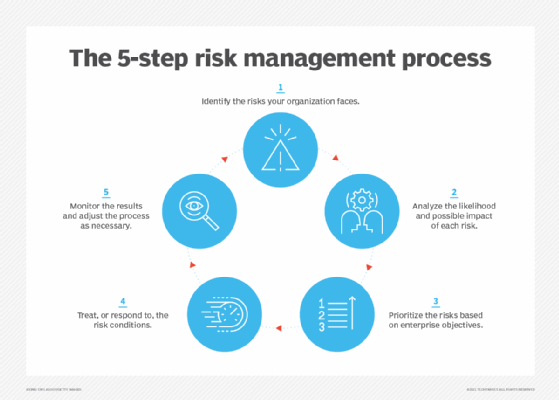The Crucial Importance of Risk Management in Financial Decision Making
The Crucial Importance of Risk Management in Financial Decision Making
Blog Article
The Value of Understanding the Value of Risk Management in Different Industries

The Core Concept of Risk Management and Its Purpose
Risk Management, the cornerstone of lots of markets, pivots on the identification, analysis, and reduction of unpredictabilities in an organization atmosphere. By appropriately determining potential risks, services can establish strategies to either protect against these risks from occurring or reduce their impact. As soon as risks have been determined and assessed, the reduction process entails designing strategies to reduce their possible effect.
Advantages of Executing Risk Management in Service Operations

Introducing the Duty of Risk Management in Different Industries
While every market confronts its one-of-a-kind set of dangers, the implementation of Risk Management approaches continues to be a typical in their search of sustainability and development. In the healthcare sector, Risk Management involves guaranteeing client safety and security and data protection, while in money, it involves mitigating financial investment threats and making certain regulative conformity. Eventually, the function of Risk Management throughout markets is to determine, assess, and reduce risks.
Real-life Situation Studies Demonstrating Effective Risk Management
To recognize the relevance of Risk Management in these several markets, one can seek to a number of real-life instances that show the effective application of these steps. For example, in the energy sector, British Oil created Risk mitigation plans post the 2010 Gulf of Mexico oil spill. They carried out much better safety and security treatments and more stringent policies which substantially minimized further mishaps. Likewise, in money, Goldman Sachs successfully browsed the 2008 economic situation by identifying potential mortgage-backed protections risks early. Last but not least, Toyota, post the 2011 earthquake in Japan, changed its supply chain Management to lessen disruption threats. These situations show exactly how markets, picking up from dilemmas, effectively applied Risk Management methods to reduce future dangers.
Future Fads and Developments in Risk Management Approaches
Cybersecurity, when an outer concern, has catapulted to the forefront of Risk Management, with strategies concentrating on detection, response, and avoidance. The combination of ESG (Environmental, Social, Administration) aspects into Risk Management is one more expanding pattern, showing the increasing recognition of the role that ecological and social risks play in company sustainability. Hence, the future of Risk Management exists in the combination of innovative innovation, cutting-edge strategies, and a holistic technique.
Final thought
To conclude, recognizing the significance of Risk Management across a range of industries is crucial for their longevity and prosperity. Customized strategies can aid alleviate prospective dangers, safeguard assets, and foster stakeholder depend on. visit our website In addition, proactive decision-making aids in governing conformity and optimizes resource use. Eventually, effective Risk Management adds to much more lasting and resilient services, highlighting the significance of this practice in today's dynamic and extremely affordable business atmosphere.
While every sector faces its one-of-a-kind set of risks, the implementation of Risk Management approaches continues to be an usual in their quest of sustainability and growth. In the healthcare industry, Risk Management requires guaranteeing client security and data security, while in money, it involves mitigating financial investment risks and making sure regulatory conformity. Ultimately, the role of Risk Management across sectors is to identify, examine, and mitigate threats. These cases demonstrate useful link just how markets, discovering from situations, effectively applied Risk Management strategies to decrease future risks.

Report this page